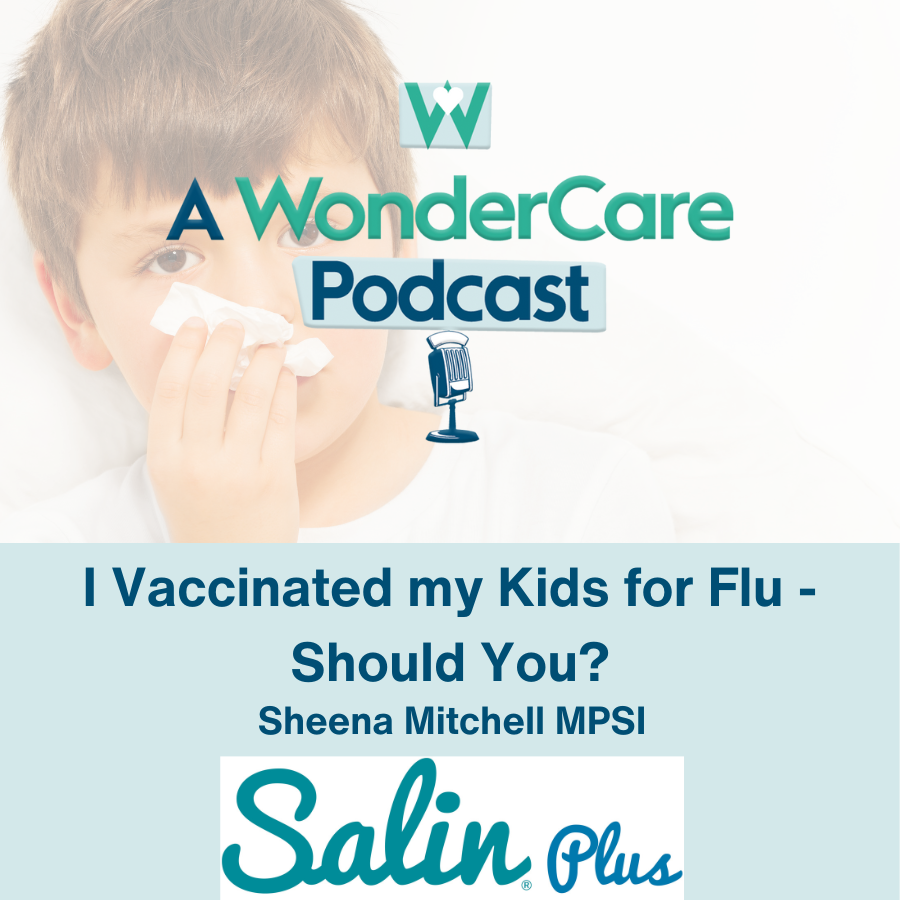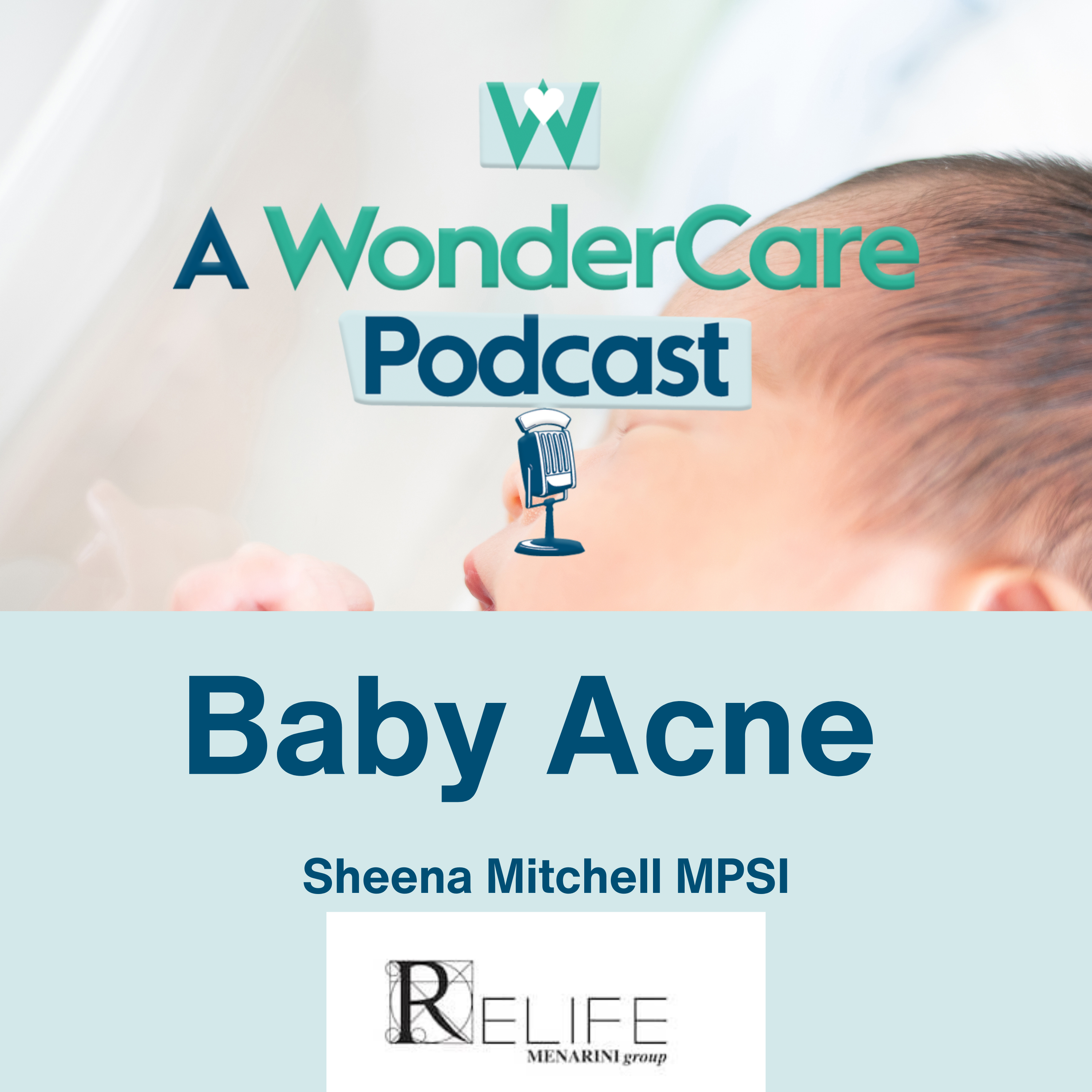Episode Transcript
Speaker 1 00:00:04 I'm Sheena, Mitchell, a pharmacist and mum of three. This is a podcast full of parenting tips and information to support you on your parenting journey. If you enjoy the show, please follow, subscribe, and review. And most of all, tell your friends, this podcast is proudly sponsored by Medicare fem sense. Ireland's newest and most innovative ovulation tracking solution. The Medicare fem sense smart temperature patch is comfortable and discrete and is worn under your arm during your fertile window to measure and confirm ovulation women have reported a 93% success rate in detecting ovulation with over 10,000 pregnancies already recorded visit Fleming medical.ie/fm sense for more details. In a recent episode, I discussed trying to conceive and how to boost your chances in the first year. This episode is for people who have not successfully conceived after 12 months of trying, if they're under 35 years of age or within six months of trying, if they're over 35 or have irregular or no periods, I want to explain what can go wrong on your trying to conceive journey and what can help is out there.
Speaker 1 00:01:10 Firstly, I just want to start this episode by saying I am a pharmacist and yes, I am blessed. I am a mother to three beautiful children, but it is not without empathy that I joined this conversation in my professional life. I support families who need the medical support in the pharmacy while trying to conceive. But on a personal level, I have been through my own struggles. It took us over a year to conceive our first child. And this journey was not without its losses, overwhelming fear that children might not be a reality for you when you want them so badly is crippling and devastating. I really wanted to do this episode as a follow up from the trying to conceive the first month's episode, which was earlier in season one, I wanted to do it to try and help couples trying to figure out what options are available to them and to help them navigate their fear and demystify the assisted conception journey.
Speaker 1 00:02:07 It is important not to lose hope, but it's also important not to put your head in the sand. Help can only find you if you look for it. Okay. So before we start discussing fertility problems, it's important to make sure that we all understand the hormone cycle. Before we start trying to fix it. I'm using a 28 day cycle as an example of a normal cycle, but really we know they can vary in length between around 21 to 36 days. And we'll talk more about abnormal cycles shortly. So just to highlight and to summarize day one to 12 is called the fi phase. During this phase, your body produces estrogen and follicle stimulating hormone, which from now on, I'm going to call FSH to help your body mature and develop one of the eggs in your ovaries day 13 to day 15 during this phase, the ovulatory phase, the high levels of estrogen and FSH stimulate a release of luteinizing hormone, which from now on, I'm gonna call LH.
Speaker 1 00:03:12 This rise in LH is what triggers the release of the egg from the follicle day, 16 onwards sees you enter the LTIL phase, your body adjusts and estrogen drops while progesterone rises. This is because progesterone helps to prepare the uterus for implantation. If pregnancy occurs, the embryo takes over the role of estrogen production, but if it does not progesterone drops and the cycle starts again. So now we know the different phases in our cycles. We can see that there are multiple steps and many factors involved for everything to go perfectly. All of the hormone rises and falls are amazingly controlled by the hypothalamus. The hypothalamus is like your body's smart controlled center. It's in your brain. And it maintains hormone levels by signaling to your prou gland, which then releases LH and FSH, which trigger your ovaries to release estrogen or progesterone. This smart feedback system is truly incredible.
Speaker 1 00:04:10 It is exactly the same for men except that the LH and FSH stimulate the testes to produce testosterone. It's important to know that your fertility therefore involves your hypothesis, your pituitary gland, your ovaries, or your test days. In addition to all of the physical parts like tubes, Andre lining by seeking help, you are starting a journey to understand what part of your system needs. Support. Female infertility can be caused by many things, including ovulation disorders issues with the tube function or cervical or uterine problems. P C O S is responsible for 70 to 85% of ovulation disorders. This is when there are one or more cysts around the ovaries. Other causes include hypothalamic dysfunction or premature ovarian failure, which is also known as early menopause. Tubal issues can include pelvic inflammatory disease, which can cause adhesions or blockages in the tubes. Cervical and uterine issues can include polyps tumors or cervical stenosis.
Speaker 1 00:05:11 We discussed the role of the hypothalamus and pituitary. So any abnormality in the functioning of these tissues can affect hormone levels and prevent a hormone cycle from running smoothly. It is not all doom and gloom. And today the most important thing for me to say is that there is hope science is amazing and even small interventions and tweaks can result infertility being restored good general health and disease management is so incredibly important. So please listen to my earlier episode relating to boosting your chances of conception. It is too broad, a topic for me to fully explore today. So I will just summarize some of the types of fertility assistance that now exist due to medical advancements. I want to do this for those couples out there who feel overwhelmed by all the information on the internet and who actually just don't know where to start looking.
Speaker 1 00:06:03 I want to explain to couples who may not know what type of medical assistance is out there. I want them to know what's available and hopefully this will give you hope and by understanding your cycle and how one small part of it not working properly can be enough to limit your chances of conception. It isn't always a big dramatic fix going for the investigations and getting checked out can result in finding out something so small was inhibiting. Your chances. Speaking to your doctor is the first step. And after that, they may refer you to a fertility specialist, but I just want to highlight some of the different options that will be laid in front of you. Your plan with your specialist will completely depend on your unique situation. And again, it's important to remember, this is a couple problem. Male issues can include poor sperm quality, a low sperm count, and many other reasons.
Speaker 1 00:06:56 And as we said in the last episode, 40% of infertility comes from the woman. 40% comes from the male and 20% will remain unknown. So what can be done? Well, there are medicines to encourage or trigger ovulation. So if you're not ovulating by yourself, there is simple medication that can be given to encourage natural ovulation, depending on your medical circumstances. There are also medicines and exogenous hormones to help encourage implantation and maintain pregnancy. So as we know from my description earlier, progesterone is really important in that role. And sometimes you may not be producing enough progesterone that can be fixed. There are ways of completely taking control of your hormonal cycle to create the perfect environment for conception to occur. Your clinical team will decide on the best approach for you. Your conception can be assisted by IUI, which is intrauterine insemination. This is where sperm are placed directly into the uterus at ovulation.
Speaker 1 00:07:57 Your body can be primed to ovulate accordingly, and to be receptive to implantation, pregnancy support can be provided medically if needed to sustain the pregnancy. Conception can also be assisted by ICSI. This is intracytoplasmic sperm injection. This is when a single sperm is selected and injected into an egg. This is really useful to help with decreased sperm quality. So if your clinician thinks that the sperm is having difficulty penetrating the egg by itself, that is a problem that can be overcome. Using this technique. The embryo is then transferred into the uterine cavity. At that point, the pregnancy can be supported. Medically your conception can also be assisted by IVF. IVF is in vitro fertilization. So this is where egg production is medically stimulated and the eggs are then retrieved and fertilized in the lab. A healthy embryo can then be transferred back into the prime uterus where its chances of success are supported.
Speaker 1 00:08:59 There are of course risks with any type of assisted conception, such as miscarriage, ovarian hyper stimulation, ectopic pregnancy, or infection, but there is also hope your infertility might be minor. One small part of a very intricate and amazing human system might just not be in line. You may not need much intervention at all, but I hope that today shown you that there is possibilities for almost every scenario. There is hope it won't necessarily find you. So I just hope this episode gives you the strength to lift your head up, dust yourself off and journey. Some more. I will add a list of really useful resources to the show. Note your community pharmacist will do whatever they can to support you. There are a few things though that you can do to make it run a little more smoothly. If your clinic provide you with a prescription, I would advise bringing it to the pharmacy at your earliest convenience.
Speaker 1 00:09:56 Even if it's a couple of weeks before you think you'll need the medication. Timing of medicines is incredibly important at the moment in Ireland, there are many drug shortages for a variety of reasons. There are also complications like certain really expensive medications, only being available on what's known as the high tech hub. Your doctor will need to register you as a high tech patient. If you are using some of these medications and that will enable the pharmacy to access your prescription and to order your medicines, the last thing you want is a missed cycle for no reason. So what I would say is, if you know, you're gonna need your medication pop in to your local pharmacy, where you're getting your medicines and discuss your prescription with them and make sure they have everything they need so that they can have everything ready when you need it.
Speaker 1 00:10:41 There are also some items which are not licensed or available in Ireland. That doesn't mean we can't get them. It just means that we have to order them, especially in for you. These medicines generally come in from other European countries. We use special importers and we know that these medicines are safe, but it does take us a little bit longer to get our hands on them and to make sure that they're ready for when you need them. I hope to explore this topic more in the future. So please follow or subscribe to this podcast. I'd actually really appreciate. If you could leave me a review, you can also get in touch through the wonder Baba Instagram page to let me know if there's any topics that you would like me to cover in the future.


